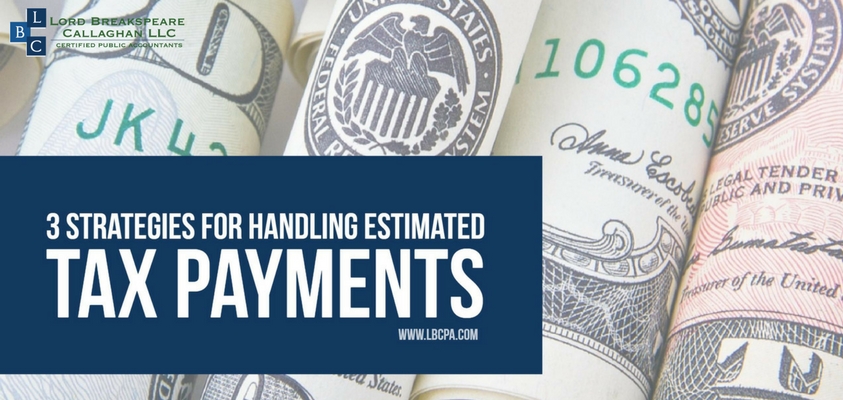LBCPA News 
Click here to go back
3 Strategies for Handling Estimated Tax Payments

In today’s economy, many individuals are self-employed. Others generate income from interest, rent or dividends. If these circumstances sound familiar, you might be at risk of penalties if you don’t pay enough tax during the year through estimated tax payments and withholding. Here are three strategies to help avoid underpayment penalties:
1. Know the minimum payment rules. For you to avoid penalties, your estimated payments and withholding must equal at least:
90% of your tax liability for the year,
110% of your tax for the previous year, or
100% of your tax for the previous year if your adjusted gross income for the previous year was $150,000 or less ($75,000 or less if married filing separately).
2. Use the annualized income installment method. This method often benefits taxpayers who have large variability in income by month due to bonuses, investment gains and losses, or seasonal income — especially if it’s skewed toward year end. Annualizing calculates the tax due based on income, gains, losses and deductions through each “quarterly” estimated tax period.
3. Estimate your tax liability and increase withholding. If, as year end approaches, you determine you’ve underpaid, consider having the tax shortfall withheld from your salary or year-end bonus by December 31. Because withholding is considered to have been paid ratably throughout the year, this is often a better strategy than making up the difference with an increased quarterly tax payment, which may trigger penalties for earlier quarters.
Finally, beware that you also could incur interest and penalties if you’re subject to the additional 0.9% Medicare tax and it isn’t withheld from your pay and you don’t make sufficient estimated tax payments. Please contact us for help with this tricky tax task.






